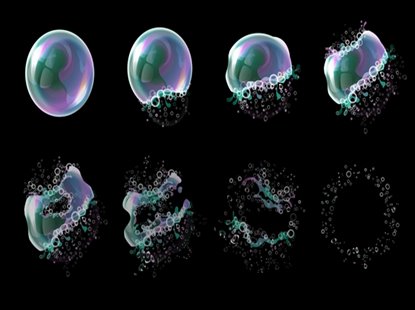Discover the Environmental Impact of Defoamers in Industrial Applications
Discover the Environmental Impact of Defoamers in Industrial Applications
Blog Article
The Role of Defoamers in Enhancing Item High Quality and Performance
Defoamers offer as crucial additives that reduce this problem, making sure smoother production workflows while improving the visual and useful characteristics of the final products. The option of the proper defoamer can be essential to attaining optimal results, raising essential concerns regarding formula compatibility and performance metrics that merit additional exploration.
Comprehending Defoamers
Comprehending the function of defoamers is vital for keeping item high quality throughout different markets. Defoamers are chemical ingredients created to protect against the formation and minimize of foam in liquid systems, which can negatively impact processes such as mixing, filling up, and surface area stress. Foaming can cause ineffectiveness, item problems, and compromised aesthetic appeal, making defoamers an important element in manufacturing procedures.
In commercial applications, defoamers help to boost product uniformity and stability. The reliable use of defoamers not just guarantees smoother manufacturing processes yet also adds to exceptional item performance.
Additionally, the selection and solution of a defoamer should line up with particular application requirements, such as compatibility with various other active ingredients, effectiveness under varying temperature and pH problems, and prospective regulative restrictions. Eventually, recognizing defoamers' features and their significance in numerous solutions is crucial for maximizing production and guaranteeing the greatest quality end items.
Kinds of Defoamers
Defoamers can be categorized right into a number of types based upon their structure and system of action. The main kinds include silicone-based, non-silicone organic, and inorganic defoamers.
Silicone-based defoamers are among one of the most effective, largely because of their ability to spread out rapidly on the liquid surface and interfere with foam formation. Their special chemical structure allows for remarkable stability, making them suitable for high-temperature applications and settings with differing pH levels.
Non-silicone natural defoamers, typically composed of natural oils or fatty acids, are valued for their biodegradability and reduced poisoning. These are normally used in food and beverage applications where safety and environmental impact are paramount.
Inorganic defoamers, that include compounds like talc or calcium carbonate, act by increasing the density of the fluid, thereby minimizing foam stability. They are often used in commercial procedures where compatibility with various other products is not a concern.
Each sort of defoamer has distinct advantages and restrictions, permitting customized services depending upon the details lathering concerns experienced in various applications. Comprehending these differences is important for maximizing performance and accomplishing wanted item quality.
Applications Across Industries
Many markets take advantage of defoamers to enhance item quality and operational effectiveness. In the food and drink sector, defoamers are vital in procedures such as brewing and milk manufacturing to stop foam formation, which can lead to inefficiencies and product incongruity. By regulating foam, producers can make certain much better return and an extra consistent product.
In the pharmaceutical sector, defoamers play a vital function in the formulation of fluid medicines, where extreme have a peek at this site foam can restrain Related Site blending and precise dosing. Their use helps preserve the integrity of the solutions and promotes smoother manufacturing procedures.
The paint and finishes market additionally counts on defoamers to enhance the performance of products throughout application. By reducing foam, these ingredients ensure a smoother finish and boost the aesthetic high qualities of the last item.
.png?width=250&height=140&name=35722%20BOR%20Defoamers%20Ad_V8-BACKGROUND%20(2).png)
Benefits of Utilizing Defoamers
While the application of defoamers varies throughout markets, their advantages continually boost product quality and procedure effectiveness. One considerable advantage is the decrease of foam development during manufacturing procedures, which can otherwise cause manufacturing delays and inconsistencies in product top quality. By minimizing foam, defoamers allow a smoother circulation of materials, facilitating more reliable procedures and lowering the likelihood of equipment breakdowns.
In addition, using defoamers can boost the appearance and structure of end products. In markets such as coatings, paints, and food processing, too much foam can endanger the aesthetic aesthetic appeals and total high quality, while the suitable defoamer application makes certain a consistent surface and preferable characteristics. In addition, defoamers can add to set you back financial savings by decreasing waste during manufacturing and enhancing using raw products (defoamers).

Picking the Right Defoamer
Picking the ideal defoamer is critical for maximizing production procedures and making certain item top quality. The selection of defoamer affects not only the efficiency of foam control but also the overall performance characteristics of the last item. Aspects official site to think about include the sort of application, the chemistry of the formulation, and the ecological problems under which the product will certainly be made use of.
Various markets may call for certain defoamer types, such as silicone-based, organic, or polymeric defoamers. Understanding the compatibility of the defoamer with the key components is important to prevent unfavorable reactions that can jeopardize product honesty. Furthermore, the defoamer's effectiveness in numerous temperature levels and pH levels have to be examined to guarantee consistent efficiency.
Testing the defoamer in small applications can provide useful insights into its efficiency and suitability. Factor to consider of regulatory compliance, specifically in food, pharmaceuticals, and cosmetics, is extremely important in choosing a defoamer. Inevitably, a comprehensive analysis of these factors will certainly bring about the choice of a defoamer that not just controls foam successfully yet also improves the top quality and performance of the final item.
Verdict

Finally, defoamers are crucial additives that substantially boost item quality and performance across various markets. By successfully lowering foam development, these representatives not only enhance operational efficiency but also contribute to the practical and aesthetic stability of products. The calculated choice and application of defoamers cause set you back financial savings, enhanced resource use, and enhanced client fulfillment. Generally, the value of defoamers in commercial processes can not be overemphasized, as they play an important role in achieving consistent and top quality outcomes.
Frothing can lead to ineffectiveness, product defects, and endangered aesthetic appeal, making defoamers a critical part in producing operations.

Report this page